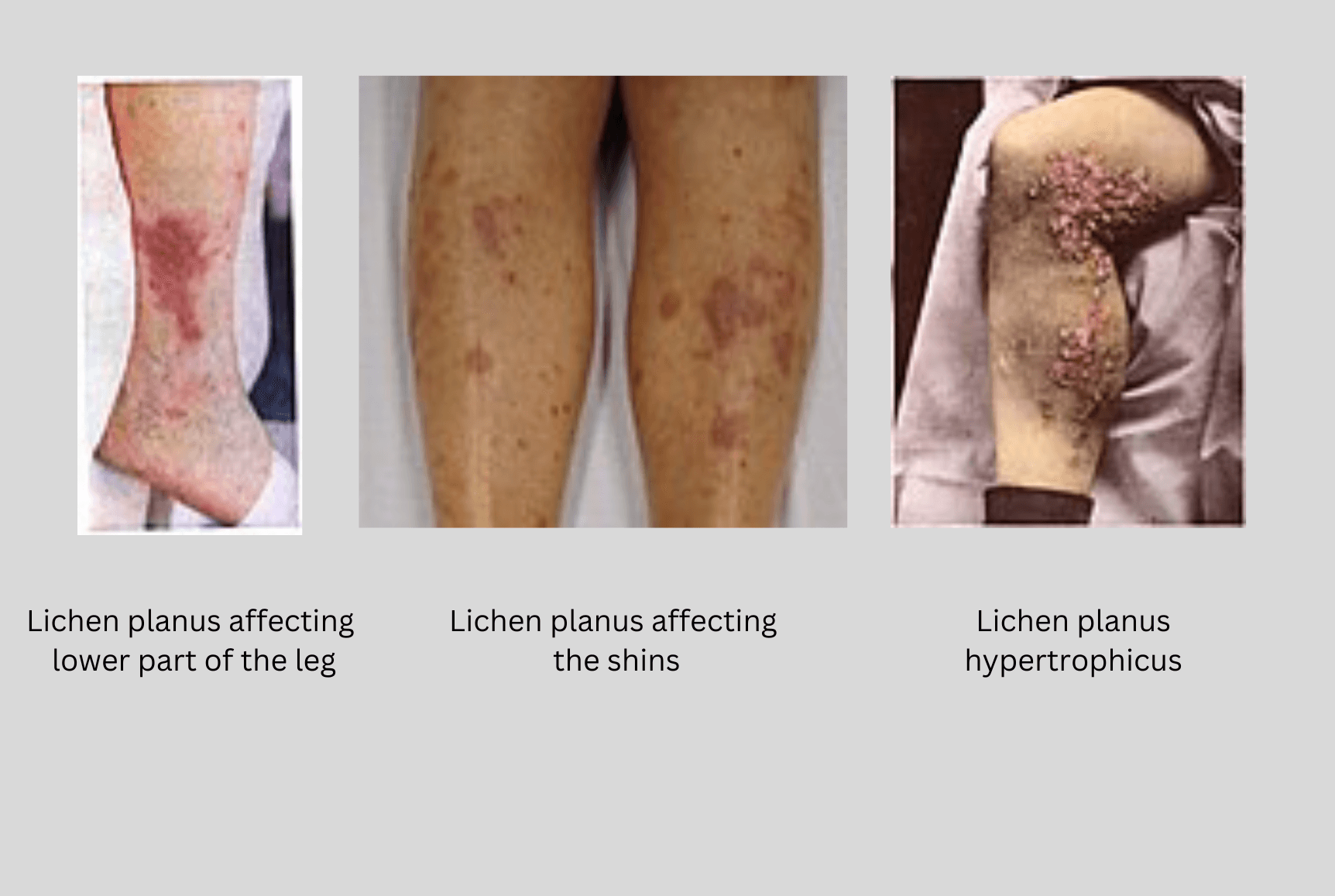Download A4Medicine Mobile App
Empower Your RCGP AKT Journey: Master the MCQs with Us!

This table provides a comprehensive overview of Lichen Planus (LP), a chronic, immune-mediated inflammatory disorder affecting the skin and mucous membranes. It summarizes essential aspects of LP, including its definition, prevalence, clinical characteristics (highlighting the classic "Six Ps" presentation), histological features, subtypes, triggers, clinical variants, prognosis, diagnostic methods (including biopsy and immunofluorescence), and the importance of differential diagnosis. LP can be challenging to identify due to its resemblance to other conditions, making this table a valuable resource for clinicians seeking to understand, diagnose, and differentiate LP in clinical practice.
| Aspect | Key Information |
|---|---|
| Definition | Lichen planus (LP) is a chronic, immune-mediated inflammatory disorder primarily affecting the skin and mucous membranes. |
| Prevalence | Cutaneous LP is rare, with a prevalence ranging from 0.22% to 1%. Oral LP is more common, affecting 2% to 5% of the general population, with a higher prevalence in women. |
| Age and Gender | LP typically appears in middle-aged adults between 30 to 60 years old. It rarely affects other age groups. |
| Clinical Characteristics | - Classic Presentation (The Six Ps of LP): |
| - Purple: LP lesions often have a purple or violaceous hue. | |
| - Polygonal: They are typically polygon-shaped. | |
| - Planar: They appear flat and level with the skin surface.... |
Try our Free Plan to get the full article.